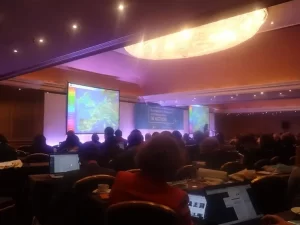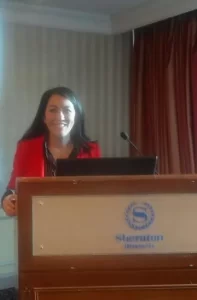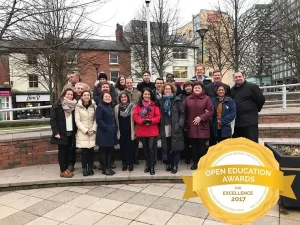Alexandra Okada, Wednesday 23 November 2016
The conference “Responsible Research and Innovation (RRI) IN ACTION,” organised by the RRI Tools project and supported by the European Commission, was held in Brussels on the 21st – 22nd of November 2016. This event brought together 200 experts in the field to discuss open science and innovation systems that tackle the societal challenges of our world.
RRI IN ACTION engaged a full range of R&I stakeholders: researchers and research organisations, policymakers at global, European, national, and regional levels, business and industry representatives, science education members, and civil society organisations.

During this event, various relevant questions were discussed: What are the key impacts of RRI projects for academia, business, and society? What have RRI projects achieved so far? Is our research work addressing social-scientific issues that are significant for society? What are the consequences of projectification? How are we equipping the next generation for RRI? How are the RRI best practices influencing policy? What are the international perspectives on responsibility and innovation? What is next? What is beyond the H2020?

Ale Okada, the technical coordinator of the European project ENGAGE, invited as a speaker, presented various outcomes of the project and its impact in EDUCATION. ENGAGE developed a wide community of more than 12,000 teachers in 80 countries, 30 Open Educational resources on topical science, and 3 Massive Open Online Courses translated into 10 languages. It also created a significant RRI curriculum that connects science with societal issues, needs, and concerns, along with 10 inquiry skills for equipping youth for RRI linked to the AQA national exam board. Furthermore, 6 pedagogical tools for educators to embed RRI in the classroom, and various best practices at the local, national, and transnational levels were discussed. During the conference, Okada also discussed with the participants the outcomes of the research on the mapping technology “LiteMap“ for RRI, which has been used by the ENGAGE community (researchers, teachers, and students) for two years in Europe and Brazil.
More than 45 projects were presented on various key issues: public engagement with science, gender equality, open access, ethics and research integrity, and science education. The event was a fantastic opportunity to collaboratively envision the next steps of Responsible Research and Innovation in Education, including in terms of impact, policy, and funding opportunities. The event ended with a nice proverb: “If you want to go fast – go alone, if you want to go far – go together.”

